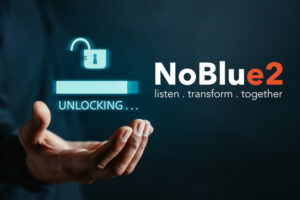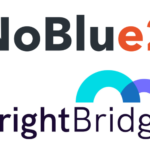This article follows on from Gaming, eSports, GaaS… The new age of video games
How gaming is evolving to GaaS
So we know the gaming industry is constantly progressing, revenue from eSports alone is set to hit £1 billion within the next 3 years and more people are getting involved with eSports as a profession, but where did it all start and how is the gaming industry evolving?
The first video games console coming out way back in 1972, the Magnavox Odyssey helped to launch a new era of entertainment which roughly 1.2 Billion people around the world now partake in. The first ever home based video games console only managed a measly 350,000 units sold but would go on to provide a platform for what is now an industry worth well in excess of £80 Billion worldwide.
Over those years we’ve seen cartridges turn into digital downloads and multiplayer gaming go from sharing the same screen at home to being complete polar opposites yet still having fluent and fluid gameplay. Now gaming is evolving to its next form, GaaS (Gaming as a Service).
What is GaaS?
GaaS is a subscription based gaming service where the user can purchase a game or franchise of games for a monthly/annual cost. Much like how we use SaaS, GaaS allows for joining and leaving at the users convenience and also focuses on microtransactions for the bulk of its revenue. We’re already starting to see GaaS taking off with the huge success off games like Fortnite, a free to download game which doesn’t require any purchase however to unlock extras you can make microtransactions to unlock certain features, special weapons and advance your character faster.
Fotnite isn’t the only example of success with a GaaS based model. Electronic Arts (EA for short) launched their EA Access service which for a monthly cost gives you discounts across microtransactions on the majority of their games, early release on future titles and access to over 45 of their games to download and play as part of the service.
With the success of EA Access, other games publishers are exploring the possibility of GaaS model which cuts down on production costs whilst having greater longevity value per customer. With large franchises such as Fifa, Call of Duty, NHL etc all having a yearly cycle, converting to a GaaS model allows for development of these games all year round without the consistent break in development due to marketing or release etc. A GaaS model would allow these games to not only improve on a more regular basis but would lower production costs, improve deployment by rolling patches out to the cloud rather than having individuals download them in order to play and is a regular stream of income that stays consistent in comparison to a physical disc which loose value as it gains age.
Business systems need to operate smoothly to allow GaaS to develop
As gaming as a service continues to develop the business systems required for a smooth operation and growth will also need to match. This means having the ability to successfully manage users, manage and maintain subscription billing, instant approval and distribution of microtransactions, real time data and deployment plus much more. Some features to consider when looking for a business systems to compliment your GaaS model;
Unique Billing for Subscription Management
Unique billing is important to allow for multiple ways to charge a customer, offer plans, be unique and process transactions. For example SuiteBilling can cover 3 main billing structures which would suite a GaaS model, these are;
Flat Billing – The most common subscription based billing format is flat rate, charging the customer the same amount on a weekly/monthly/annually basis. Each active customer is invoiced before their subscription is set to end and flat billing will either take the money out of their account without the customer needing to do anything or prompts them with the appropriate link to make payment. This then renews their service for the specified time whilst consolidating accounts and updating the customers record.
Volume Based Billing – Not one typically used for Gaming as a Service but it gives you the ability to charge a customer based on consumption. As GaaS uses cloud technology and bandwidth, you can create a unit rate for either time, usage, bandwidth etc and apply the unite rate to a pricing model. This means customers will only be charged for how often they game and could be a USP for any GaaS business allowing casual gamers to pay a lower price than those more hands on.
Tiered Model – Similar to volume based billing where a unit of measure is assigned to a pricing model but this time the customer is charged the amount assigned to a units range. Assume the most common would be time spent using the service, the user would be charged a set amount for 5-10 hours, 10-20 hours and so on.
CRM & Customer Management
Now a CRM may seem a bit obvious for any sized business but a rapidly growing GaaS business needs a powerful and intelligent, real time CRM to handle the mass amount of signs ups and users expected with any popular game. With possible complexities such as managing microtransactions, subscription based billing, location, usage, preferred platform, fluctuations in usage periods, cross device connectivity and more, an advanced CRM is imperative to ensure you offer your customers the best service.
With all this data to capture, you will need to segment your user database down to the true nitty-gritty details. Organise active subscribers in a specific location who’ve spent x amount on a specific microtransaction to offer them a special offer, upsell a tailored plan or send a unique marketing campaign. By simply running a few queries you’re able view true data and in real time. Not something your typical CRM can provide.
Accessible anytime, anywhere
With modern gaming now being more than just a game, users will want to be able to connect to their games character at any and every chance they get. For example within Fifa there is an ultimate team mode which allows for users to play on console but also participate in other elements via tablet or a mobile app.
Having the right business system integrated into a game and apps can allow for multiple devices to all be securely connected to one another. With multi-step login authentication, a user will be able to access their gaming hub from where ever they please with a secure connection. This not only gives the user a greater experience whilst using a GaaS but also gives so much more to a business, namely engagement which is helping the gaming as a service industry thrive in this multi-device modern era.
Fifa isn’t the only example. The first being back in 2010 when Fable 3: Kingmaker app was released 3 months prior to the actual console game, Fable 3. The app allowed users to collect and earn gold by marking real world locations with their faction, this then was transferable to the actual game upon its release. This was over 7 years ago, the first major instance of cross platform, real world gaming.
What next for Gaming as a Service?
There’s already major advancements withing the GaaS industry, one which appears to be very up and coming is Shadow. A true subscription, cloud based GaaS which not only goes on to manage monthly subscriptions but also offers a tailored PC via full purchase or addition rental. Shadow utilises the cloud to run all its games with the latest technology, allowing users to play with what feels like a top of the range PC.
Top gaming publishers like Electronic Arts are already utilising cloud technology, switching more towards Gaming as a Service and they’re not the only ones. Ubisoft one of the biggest publishers are pushing towards a GaaS structure by releasing fewer games but sticking with them for longer. Adding to them and designing them support regular streams of updates and real time patch deployments.
Currently 4 of the largest gaming publishers are fully/partly cloud based (Electronic Arts, Ubisoft, Activision | Blizzard and Take Two) and leading the modern gaming era. As they continue to thrive and contribute towards to way we play video games, more publishers will try to join them and pretty soon Gaming as a Service will be the only way we partake in one of the worlds biggest pass times.












